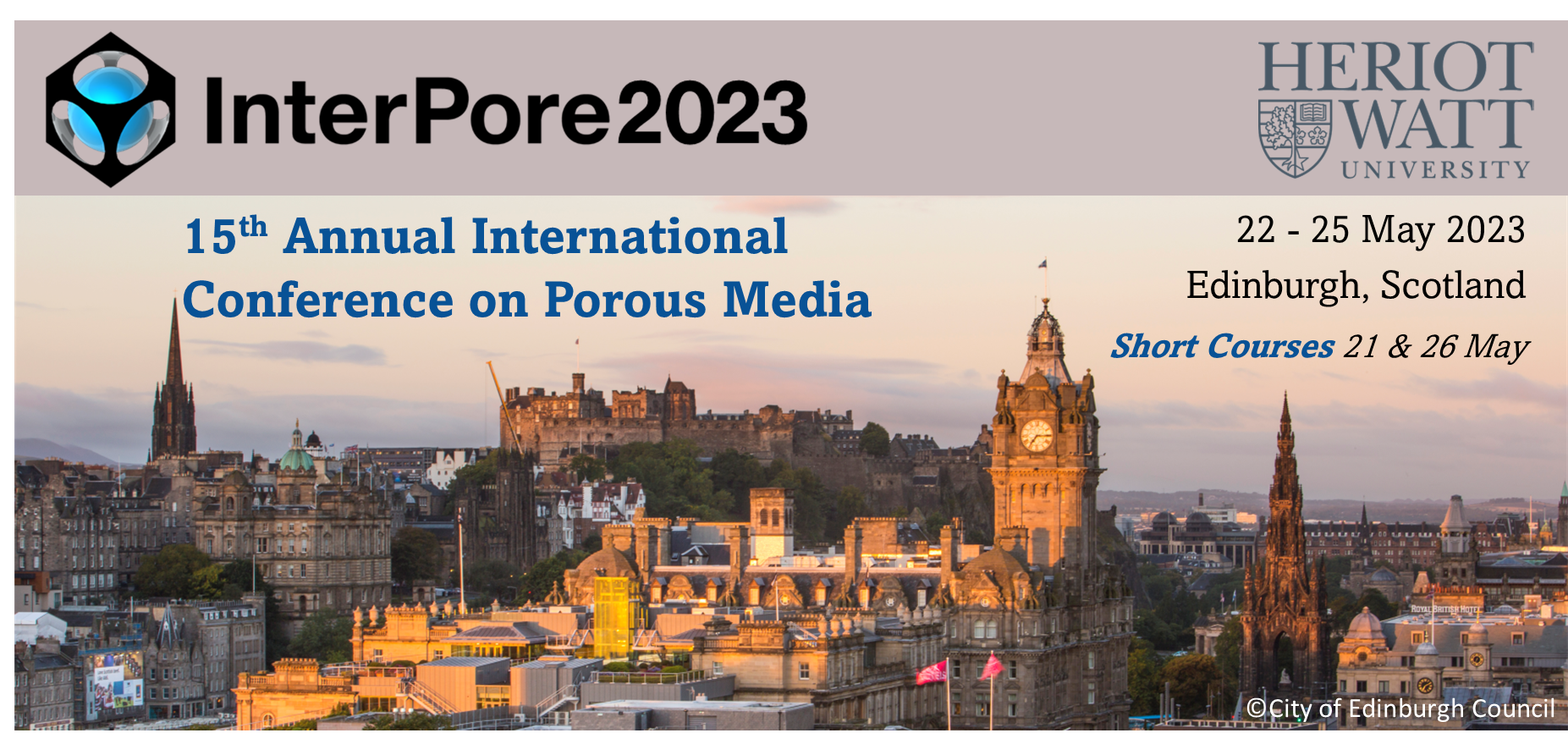Speaker
Description
Naturally occurring methane hydrates are a world-wide occurrence from the arctic permafrost to the continental shelves in tropical areas. Methane hydrates have the potential to be produced as an energy resource. Additionally, they can undergo phase transition (formation or dissociation) as a result of changing environmental conditions, and predicting the behavior is important for design of subsea infrastructure, predicting submarine slope instabilities, and understanding climate impacts from gas evolution. To this end, we are studying hydrate behavior using a multiscale model that integrates molecular-scale, pore-scale, and Darcy-scale behavior. This multiscale approach connects the fundamentals (e.g., thermodynamics and kinetics of hydrate formation, and pore-scale structure and hydrodynamics) to larger scales, in a way that is not possible using current empirical approaches.
In this talk, we focus primarily on the pore scale, and specifically modeling the dynamic phase change and fluid transport that occurs as methane hydrate dissociates due to changes in pressure or temperature. The pore-structure and spatial distribution of hydrate is obtained from microtomography images. The pore-scale distribution of hydrate interfacial area and its evolution as a function of hydrate saturation is also predicted from analysis of the digital images. The dissociation kinetics are obtained from molecular dynamics (MD) modeling and upscaled to the pore scale by computing an interfacial velocity for dissociation. The resulting pressure response and fluid transport is modeled using a novel pore-scale model derived from a time-dependent mass balance, and which accounts for both fluid compressibility and phase change.
Initial results from this work include MD simulation studies, which quantify the thermodynamic stability and dissociation kinetics. The pore-scale model for compressible flow with phase change is validated using known Darcy-scale results under simple conditions. It is then extended to incorporate dynamic dissociation behavior upscaled from the MD simulation studies. The resulting model is used to quantify the pressure response and gas transport that occurs as a result of pressure drop or temperature rise. Finally, we propose how these results can be upscaled to provide quantitative parameters for meter-scale or km-scale modeling.
| Participation | In-Person |
|---|---|
| Country | USA |
| MDPI Energies Student Poster Award | No, do not submit my presenation for the student posters award. |
| Acceptance of the Terms & Conditions | Click here to agree |







